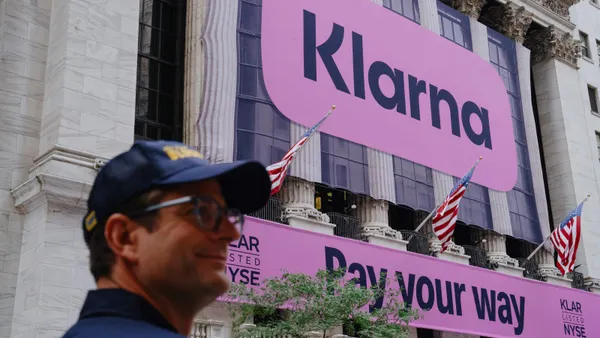Fewer than 100 of the approximately 37,000 fintech companies globally account for roughly 60% of industry revenue – and payments firms are the “indisputable winner” of the realm to date, accounting for more than half of that success.
Of the $378 billion in global fintech revenues in 2024, $126 billion came from payments fintechs, some of which have seen growth from digital wallets (like PayPal and ApplePay) or vertical software-as-a-service (like Stripe, Toast and Square), according to a report released Monday by QED Investors and Boston Consulting Group.
“Companies like Stripe and Adyen and Square really filled the gap when there was a shift to [e-commerce] and mobile commerce. They were able to just win that race and grab market share,” explained Laura Bock, QED partner and one of the authors of the report, “Fintech’s Next Chapter: Scaled Winners and Emerging Disruptors.”
“What we talk a lot about, and think a lot about, is how financial services lives downstream of the real economy,” she said. “When there are shifts in how the real economy works, that's a huge opening for fintech to make waves.”
While fintech accounted for just 3% of overall banking and insurance revenues in 2024 ($12.7 trillion, according to the report), fintech revenues surged 21%, compared to the 6% growth rate of incumbent banks.
In recent years, embedded payments has revolutionized how consumers and merchants transact for certain things, Bock explained – for their fitness classes, as with MindBody, or their dinner, as with Toast.
Artificial intelligence presents the possibility of another major shift, she noted, this time due to agentic payments.
“For example, I use ChatGPT for way too much,” Bock said. “Yesterday, I was trying to figure out where to go on my honeymoon … so I was asking it ‘what's the weather in Italy in September? Which part should I go to? What should I book?’ You can have it generate an entire itinerary. Imagine that I could then just say, ‘Hey, I like this plan, book it.’”
“I've connected [it] to my wallet or my card, I've given [it] the appropriate permissions. Maybe I say, ‘don't spend $500 without asking me,’ but I sign off on it, and it books my hotels, my activities, my flight. I don't think it's crazy that a bot [will be] your travel agent, and that it just uses your card or ChatGPT wallet to make payments,” Bock said. “I think that will become more mainstream, maybe not like in a year or two, but at some point over the next five or so years.”
Before AI agents are granted the ability to make payments, though, proper guardrails must be built to verify that the agent is acting on behalf of a person, and within the boundaries permitted by the person. Current regulatory frameworks are designed with human actors and institutions in mind, noted QED and BCG in their report; with AI agents, questions arise regarding authentication, fraud prevention, and liability.
“Say my bot goes rogue and books me in first class when I didn't want to pay for it. What happens now? Am I the one arguing with Delta?” Bock said to Banking Dive. “Every time there's a change with how payments are made, a whole new set of infrastructure needs to jump up to support it.”
Privacy and data security also pose challenges for agentic AI, according to the report, as data incidents can be devastating both financially and reputationally.
“This is where regulators will need to provide clarity and guidance,” the report said. “Given these challenges, the use of agentic AI in financial services may lag other sectors of the economy. Nonetheless, we are already beginning to see its transformational potential in software development, particularly for earlier-stage, AI-native fintechs.”













